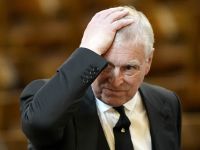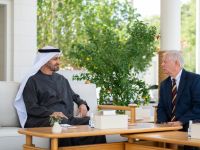DED discusses progress in competitiveness drive with logistics sector stakeholders

The Dubai Logistics Cluster Platform, launched by the Dubai Department of Economic Development (DED) in 2011 to promote stakeholder collaboration for sector development, held its regular session today to discuss progress achieved so far and strategies to be adopted for enhancing competitiveness in the sector.
Industry players and government representatives attending the cluster platform meeting also stressed the need for a stronger integrated approach to strengthen Dubai’s advantages as a multi-modal and logistics hub.
“As a premier hub for regional and global trade and a destination of choice for businesses, Dubai has vast opportunities in today’s fast changing global economic landscape. With its world-class logistics infrastructure and best practices, Dubai is best positioned to quickly adapt to - and benefit from - the changes in global trade and acquire new market shares in emerging economies, especially in the fast-growing Asian and African markets. Public-private collaboration is important to ensure that the logistics sector, which is one of the pillars of Dubai’s economy, can make the best use of this opportunity,” said His Excellency Sami Al Qamzi, Director General of DED.
A model in public-private partnerships, the Dubai Logistics Cluster Platform, the first of its kind initiative in the region, has provided a permanent platform for all relevant stakeholders to work together and strengthen the competitiveness of Dubai’s logistics sector. Following last year’s launch of the platform, technical committees were formed with different government and business representatives to work on issues that were raised and discussed by businesses.
Summarising the achievements of the Logistics Cluster Platform, Al Qamzi added: “The continuing work and discussions indicate that a comprehensive, integrated, multi-modal and logistics strategy will enable Dubai to offer seamless freight movement and optimise the benefits of the superior logistics infrastructure and facilities available in the emirate.”
Al Qamzi also stressed the need for a multiple-stakeholder executive decision-making body that can look at all issues related to freight movement from the perspective of an integrated multi-modal and logistics hub.
Delivering on the objectives of the Cluster Platform to ensure prompt follow-up and tangible action on the concerns raised by the industry, officials from the Free Zones Council, Dubai Customs, Roads and Transport Authority (RTA), National Transport Authority, and federal government agencies speaking at today’s session explained the steps taken and future strategies to clear bottlenecks and ease procedures for logistics companies.
Dr. Mohammed Al Zarooni, Chairman, Dubai Free Zones Council, said: “The creation of the Dubai Free Zones Council has come on the right time to further augment business and investments activities in Dubai. The Council aims at creating a platform for a unified processes and procedures, simplifies registration & licensing steps and assist investors to establish their business on a strong basis.”
Dr Al Zarooni added: “The Free Zones are the catalysts of the national economy with a total contribution of AED 382 billion in 2011 and more than 226, 000 employees working in the various Free Zones in Dubai. The Free Zones play a vital role in strengthening the logistics industry with many logistics companies operating in them.”
Ahmed Mahboub Musabih, Executive Director of Customer Management Division at Dubai Customs, stated that Dubai Customs is keen to provide all necessary facilities for importers and exporters. “All Dubai Customs e-services are available 24/7 and we are committed to offering all services electronically to enhance competitiveness in the Emirate of Dubai,” he added.
Musabih also listed steps taken in response to feedback from the Dubai Logistics Cluster Platform, including exempting digital goods from customs duty effective January 2012 and the decision to conduct joint training sessions on the electronic documentation systems of Dubai Customs.
“The logistics stakeholder discussions serve as an important platform for government and private entities to exchange ideas and information, and to develop mutual understanding on simplifying procedures, solving issues and ultimately supporting Dubai’s competitiveness,” said Mr. Nasser Hamad Abu Shehab, Director of Strategic Planning Department, Department of Strategic Planning, Roads & Transport Authority.
Senior executives of logistics companies attended today’s session held at the Business Village in Dubai. The Dubai Logistics Cluster Platform brings together a diversity of logistics service providers including freight forwarders, shipping companies, clearing agents, transport operators, manufacturing companies, educational institutions and firm in related and supporting industries.
Background Information
Department of Economic Development
The Department of Economic Development (DED) is the government body entrusted to set and drive the economic agenda of the emirate of Dubai, UAE. The DED supports the structural transformation of Dubai into a diversified, innovative service-based economy that aims to improve the business environment and accelerate productivity growth.





